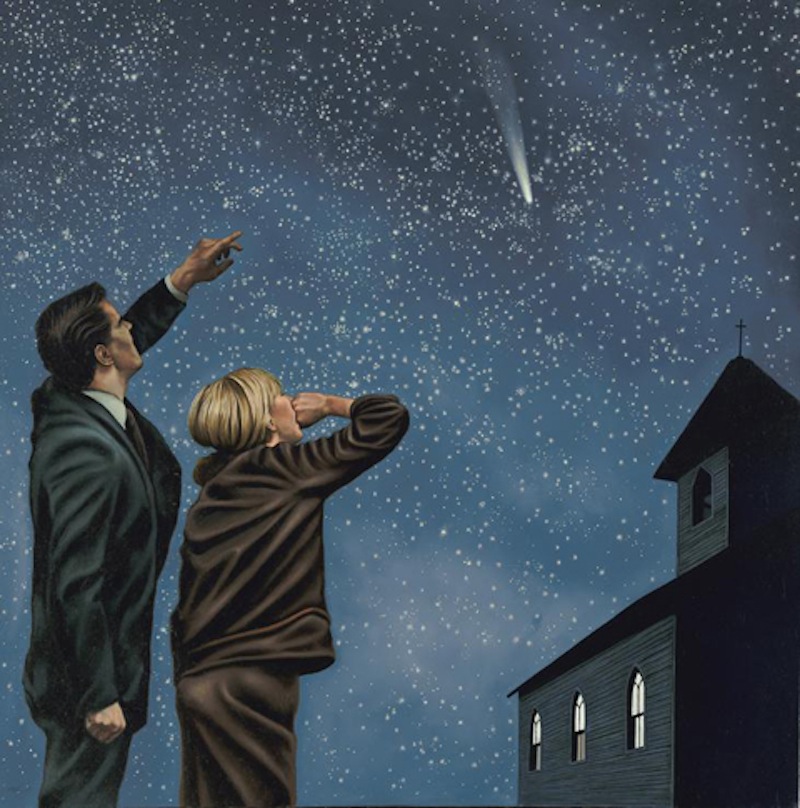Jabberwocky in the City
Guest Blogger
 Lately, I’ve been thinking about how to make sense of the city around me, especially the nonsensical, nonlinear nature of events, whether that’s a ‘light’ rush-hour coupled with a sudden spring-like day or a five-alarm apartment fire sparked by a welder’s torch; an artist painting the crape myrtle trunks blue on the parkway or thieves bashing in car windows night after night along my street. Then things get tricky and hard to put into words—ineffable. This is the impossible task that writers grapple with fairly regularly. How do we get at ‘the beyond’ part of a scene we have just encountered, a conversation we have just had, in words that will do the thing justice?
Lately, I’ve been thinking about how to make sense of the city around me, especially the nonsensical, nonlinear nature of events, whether that’s a ‘light’ rush-hour coupled with a sudden spring-like day or a five-alarm apartment fire sparked by a welder’s torch; an artist painting the crape myrtle trunks blue on the parkway or thieves bashing in car windows night after night along my street. Then things get tricky and hard to put into words—ineffable. This is the impossible task that writers grapple with fairly regularly. How do we get at ‘the beyond’ part of a scene we have just encountered, a conversation we have just had, in words that will do the thing justice?
For me, I have to circle around the ineffable. The complexity of emotion and details of scene get me tongue-tied. So I have to let the experience settle in my mind. In effect, the thing becomes like a piece of grit in a sock—something that’s present, that’s felt, but not always acknowledged. Eventually, I’m aware of its significance and start jotting ideas on the page, pinning down the details. This draft makes a collage of the visual, the tactile, the sonic, noting features that loom large, and aspects that seem too small to even notice. And I discover ideas that might encapsulate the thing—a rhetoric for the poem. Sometimes I can get away with stating an idea plainly; more often, I want the idea to exist in the details, without being stated at all.
I am especially fascinated with some lines in Gerard Manley Hopkins’ sonnet, “Hurrahing the Harvest,” the section of the poem in which he is not explicit with ideas, in which meaning circles around the ineffable, while the words are jolting:
Now, barbarous in beauty, the stooks arise Around; up above, what wind-walks! what lovely behavior Of silk-sack clouds!
Hopkins has conveyed the scene just as he must have felt it—astounded and thrown off balance. I love these lines. Hopkins’ words carry a rich, sonic quality to allow a listener to know the scene “by ear.” The words fairly hum through the body. The poet has created an experience of synesthesia, which I think encompasses the totality, the awe of the scene. Of course, “Hurrahing the Harvest” also contains a rhetoric in succeeding stanzas; the speaker wants to tell us more plainly about his experience. Yet the more powerful lines of the opening stanza—of “barbarous beauty,” “stooks arising / Around” and “wind-walks,” are substantial and unexpected. It is this kind of expression that I am after when I want to express an aspect of the ineffable, a way to make the poem felt, in addition to being heard.
(Painting by Pat Rocha)
- Guest Blogger, Rebecca Spears (Read more of her work in Relief 7.2. Purchase here.)